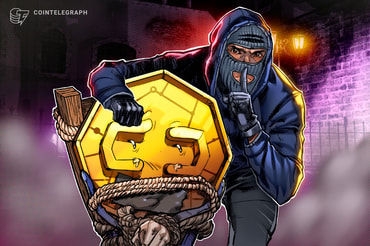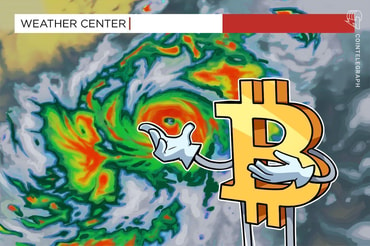Brazil advances CBDC technology with new cross-chain pilot using Chainlink’s CCIP CBDCs 1 day ago

The Central Bank of Brazil (BCB) is advancing its central bank digital currency (CBDC) framework initiative by collaborating with Banco Inter, Microsoft Brazil, 7COMm, and Chainlink, according to a Nov. 19 statement.The partnership aims to support trade finance solutions in the second phase of Brazil’s DREX pilot program. This phase will focus on automating cross-border settlements for commodity transactions using blockchain technology and oracles.The test leverages Chainlink’s Cross-Chain Interoperability Protocol (CCIP) to enable seamless interactions between Brazil’s DREX platform and foreign central banks.The initiative will tokenize an Electronic Bill of Lading (eBOL) and integrate supply chain data to automate payments. This data-driven approach will ensure that exporters are paid at various stages of the shipping process.The pilot intends to showcase how blockchain-based trade finance enables Delivery versus Payment (DvP) and Payment versus Payment (PvP). These mechanisms aim to improve efficiency, security, and transparency in the global supply chain, particularly agricultural commodities.Banco Inter is leading the implementation of the DREX platform in Brazil, while Microsoft Brazil and 7COMm will provide cloud services and technical support. Chainlink’s CCIP infrastructure will facilitate cross-chain transfers for DREX and other CBDCs.Bruno Grossi, head of emerging technologies at Banco Inter, highlighted the project’s potential to expand market access and strengthen Brazil’s economic landscape.Similarly, Microsoft Brazil said its role in DREX is to broaden access to intelligent financial services and play a key role in the development of the nation’s economy.Meanwhile, Angela Walker, the Global Head of Banking and Capital Markets at Chainlink Labs noted that the pilot would transform trade finance by showcasing how tokenized assets can unlock new CBDC applications in Brazil.She added:“Chainlink CCIP is essential to enabling secure cross-border, cross-currency, and cross-chain transactions and will help showcase what tokenized assets can do at scale for this key CBDC use case in Brazil.”Oluwapelumi values Bitcoin’s potential. He imparts insights on a range of topics like DeFi, hacks, mining and culture, underlining transformative power.AJ, a passionate journalist since Yemen’s 2011 Arab Spring, has honed his skills worldwide for over a decade. Specializing in financial journalism, he now focuses on crypto reporting. Get the latest crypto news and expert insights. Delivered to you daily.The partnership aims to explore payment and delivery systems for trade finance and carbon credits amid global tokenization shifts.Stablecoins are helping Latin Americans hedge against currency devaluation, becoming financial lifelines amid economic instability.Ripple Payments reaches over 80 payout markets and covering more than 90% of daily FX markets.This movement will allow users to buy USDC directly using Brazilian Reais and Mexican Pesos, reducing conversion costs to U.S. dollars.Chainlink partnership could bolster WLFI’s DeFi ambitions amidst funding shortfalls and criticism.Cross-border transactions see enhanced privacy with tokenized commercial paper through ADDX, ANZ, and Chainlink partnership.Swift’s pilot links 11,500 financial institutions to automate tokenized fund processes, reducing costs and enabling real-time transparency.Chainlink Oracle adoption empowers Tron’s $60 billion stablecoin sector with secure, decentralized data feeds.Disclaimer: Our writers’ opinions are solely their own and do not reflect the opinion of CryptoSlate. None of the information you read on CryptoSlate should be taken as investment advice, nor does CryptoSlate endorse any project that may be mentioned or linked to in this article. Buying and trading cryptocurrencies should be considered a high-risk activity. Please do your own due diligence before taking any action related to content within this article. Finally, CryptoSlate takes no responsibility should you lose money trading cryptocurrencies.

Published on Other News Site




















